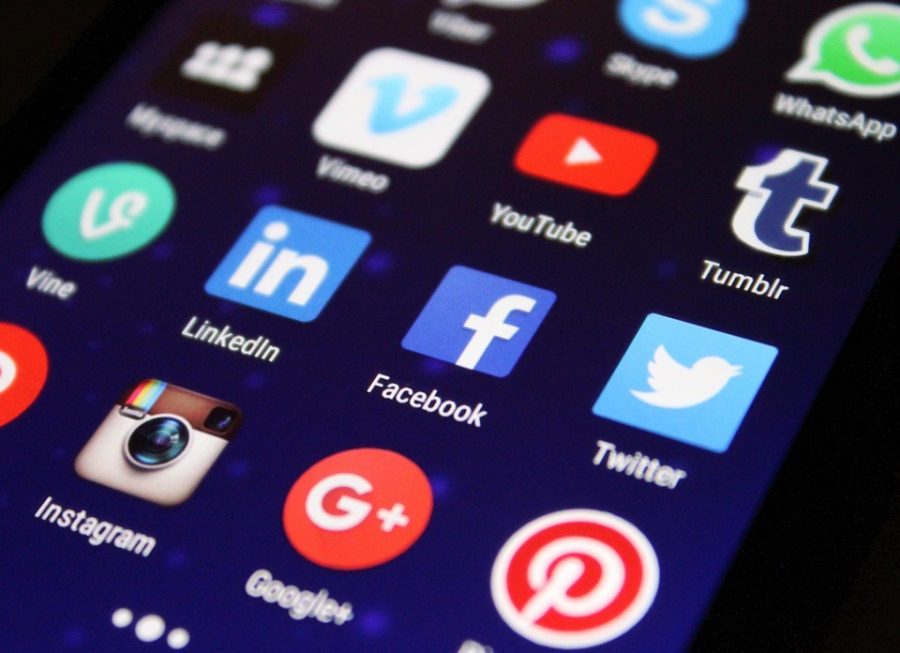How Online Echo Chambers Created the Christchurch Shooter’s Ideology
March 21, 2019

By this time, you’ve seen plenty of media coverage surrounding the Christchurch mosque shooting in New Zealand. The talking heads in the media have been quick to place the blame on the usual scapegoats, like Donald Trump or gun culture, as radicalizing individuals into the far right.
Frankly, the term “far-right” has been thrown around so much that there seems to be genuine confusion as to what the term means. Although they are often referred to as such, websites like Breitbart News or individuals like Trump are not far right; their ideologies are well within the bounds of mainstream American conservatism.
The actual far-right is vastly different. There, you’ll find people who push themselves far outside traditional American politics. Members of the far-right label themselves as eco-fascists, monarchists, anarchists, ethno-nationalists, accelerationists…or all of those at once.
So how do people get ensnared into far-right ideologies? The answer to this question is the same as those who wonder how the US has become so politically divided; echo chambers rooted in social media and the Internet.
The Power of Positive Feedback
In 1978, the neo-Nazi National Socialist Party of America attempted to march through the city of Skokie, Illinois. Although they won a court battle to determine if their march was protected under the 1st Amendment, it was canceled due to both low turnout and opposition from protestors.
This event showcases the ability of public opinion to deflate extremist movements. When fringe groups shove their way into the spotlight, they subject themselves to opposition, condemnation, and ridicule. By exposing themselves to negative feedback, they garner less support from the public and from sympathizers who fear facing the same response.
However, with the rise of the Internet, it is easier than ever for groups to bypass public opinion and spread their ideologies. People with common beliefs often band together on social media, following others with similar opinions while eschewing those who disagree. They create an ideological bubble, or echo chamber. In this bubble, people mindlessly follow the ebbs and flows of the group, lest they lose their newfound sense of community.
Because individuals want to validate their worldview and to be a part of a community, they rarely challenge the beliefs of the bubble. If the bubble is challenged, these challengers are usually shut down by a train of ad-hominem attacks from the bubble’s inhabitants, shutting down debate.
Back when I still used Instagram, I witnessed political accounts fall into the far-right firsthand. I kept tabs on the accounts both out of morbid curiosity and to better challenge their claims. After all, to challenge your enemy you must first know your enemy.
My informal ventures showed me a lesser-known result of ideological bubbles; the rapid adoption of group “trends.” Fringe individuals like to find obscure ideologies in order to set themselves apart from others in the bubble, such as advocating for monarchism in the US. As a result of this, the other members adopt this new “trend” alongside their other beliefs, as if adding it to a collection.
This creates a bizarre, nonsensical ideology that flip-flops between “trends” at the group’s behest. One day, the bubble may advocate for abolishing the police and government authority in order to protect their freedoms, and the next they call for a king to take charge of the country. George Orwell’s book 1984 actually predicted this phenomenon, dubbed “groupthink”, in which the desire for conformity leads to groups making irrational and dysfunctional decisions.
By surrounding themselves with positive feedback, the contradictory views of the bubble are never called out or challenged, and therefore survive.
A Symptom of a Greater Problem
The Christchurch shooter was active on both Twitter and the messaging board 8chan (not to be confused with 4chan). Though little information has been revealed as to what groups or profiles he followed, I theorize that he was, like many others, cocooned inside a far-right echo chamber.
The details surrounding his manifesto have yielded a bizarre look into the inevitable results of ideological bubbles. To cite one specific example, the shooter described himself as an eco-fascist, an ideology that combines the ethnic-centric beliefs of fascism with extreme environmentalism. At the same time, he also identified the People’s Republic of China as the form of government he most identified with.
This is especially puzzling when one considers the historical animosity between fascists and communists, as well as China’s awful environmental and economic conditions (which stand against the shooter’s desire for environmental protection sustainable markets).
Some could argue that he included these statements to throw off journalists. This is certainly a possibility, as the shooter included a variety of popular post-ironic memes in his manifesto and during the shooting itself in order to confuse audiences and throw off journalists (such as shouting “subscribe to Pewdiepie” before the shooting or blasting Eurobeat in his escape car).
However, I believe his eco-fascist beliefs are genuine, even the contradictory elements. Because of social media echo chambers, a nonsensical ideology was able to form uninhibited in this man’s mind to tragic ends.
What can we do?
There is no easy solution to this problem. The knee-jerk reaction is to turn towards government regulations, be that censorship of extremist content or further gun restrictions.
The problem with this is that it will harm more than it helps. Censorship could set a bad precedent in which free speech could be politically censored. Worse, it will be used by extremists as evidence of the enemy trying to keep them down, which will only strengthen the rebel/victim complex of their members.
We need to move beyond our current political climate. The “gotcha” politics that have turned debates into shouting matches have to go, and we need to stop treating each other as enemies. Only by restoring healthy dialogue can we break out of our bubbles and take the first step towards fighting extremism.








Jacob Wilks • Mar 25, 2019 at 4:31 pm
Well written piece (honestly one of the best I’ve read analyzing social media bubbles, the far right and the Christchurch terrorist). Thank you!